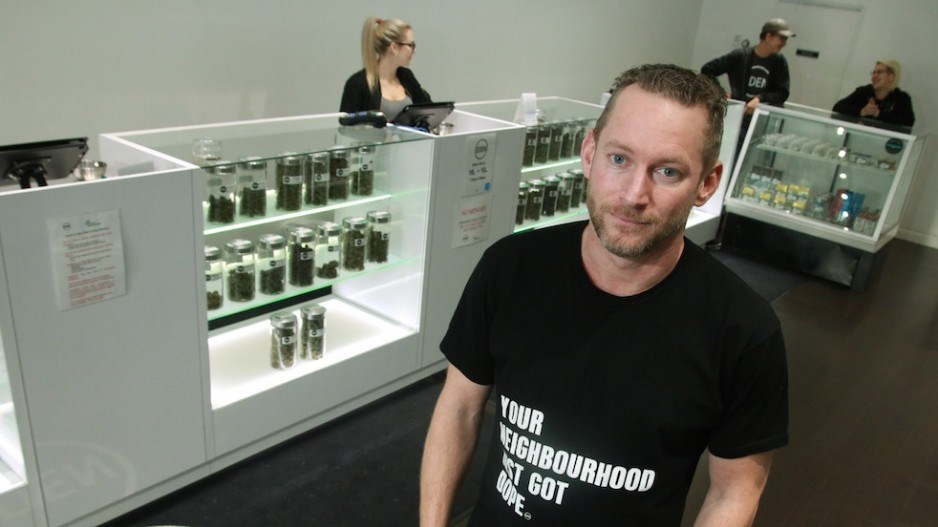As the smoke clears on how the B.C. government intends to regulate retail cannabis sales, some stipulations stand out that have retailers scratching their heads.
Most key planks in the B.C. government’s plans to control private-sector cannabis sales after the federal government legalizes adult recreational use later this year mimic how the province regulates alcohol.
The British Columbia Liquor Distribution Branch will wholesale all legal cannabis in the province, for example, and both government and private retail stores will be allowed. Another commonality is that the minimum age for buying the drug will be 19.
But unlike liquor retailers in the province, cannabis outlets will be prohibited from selling “snacks, tobacco or other non-cannabis-related items,” according to a government retail-licensing guide released in February.
Cannabis “edibles,” which are laced with tetrahydrocannabinol (THC), will be illegal Canadawide for at least another year but it is unclear why the B.C. government will not allow sales for confectionary.
After all, cannabis has a reputation for giving many consumers the munchies, and private liquor-store owners in B.C. are able to sell nibbles.
Entrepreneurs are mixed on whether they want to sell non-cannabis-related items, but all who spoke with Business in Vancouver said they should be free to sell those items if they want to.
My Eden marketing co-ordinator Bruce Shearer told BIV that his company would not sell food if it were allowed because managing additional suppliers would be a hassle.
Others see food sales as a desirable secondary revenue stream.
“Having the ability to sell those ancillary products, like chips and chocolate bars, would be good, but certainly it would not be the core of the business,” said Jak's Liquor Stores CFO Mike McKee, whose company intends to have its first cannabis store open within months of the federal government authorizing recreational sales across the country.
McKee foresees his company operating seven stores by the end of 2019 and between 10 and 15 stores by the end of 2020.
“If we couldn’t sell them snacks, it would be unfortunate,” he said, “but it wouldn’t change our outlook or approach in terms of wanting to expand into the cannabis market.”
National Access Cannabis CEO Mark Goliger would also like to sell snacks to enhance his customers’ experience, although other non-cannabis-related items are higher on his priority list.
“I’m less concerned about selling Doritos and more concerned about being able to sell branded merchandise, such as hats and clothing.”
Goliger’s company has entered into a partnership to convert some Second Cup locations into cannabis outlets.
Most of the 20 cannabis stores that he hopes to operate in B.C. by year’s end, however, will be in newly leased real estate. So will most of the other 40 to 70 stores he plans to operate in the other four Canadian provinces where private cannabis stores will be allowed to operate.
University of British Columbia assistant professor of medicine M-J Milloy, who is also a research scientist at the British Columbia Centre on Substance Use, said that having food with intoxicants can “be almost like a harm-reduction intervention.”
“Unfortunately, like a lot of cannabis issues, there has not been the research done [to prove that] as far as I am aware.”
Milloy said one reason why the government could be being initially strict is that it is easier to start with stringent rules and loosen them than to start out being flexible and then becoming more restrictive.
Further, he said that government might be concerned that once edibles are legal, in what the federal government has said will be 2019, customers might be confused in cannabis stores about whether a product is THC-laced. The result could be that they eat a THC-laced chocolate bar in the mistaken belief that it is THC-free.
An email from the Ministry of Public Safety and Solicitor General explained that some U.S. jurisdictions prohibit the sale of non-cannabis-related snacks in cannabis stores.
“Changes may be considered as the industry develops,” the email said. “In addition, there is no evidence that consuming cannabis in conjunction with food reduces harms associated with using cannabis.” •




